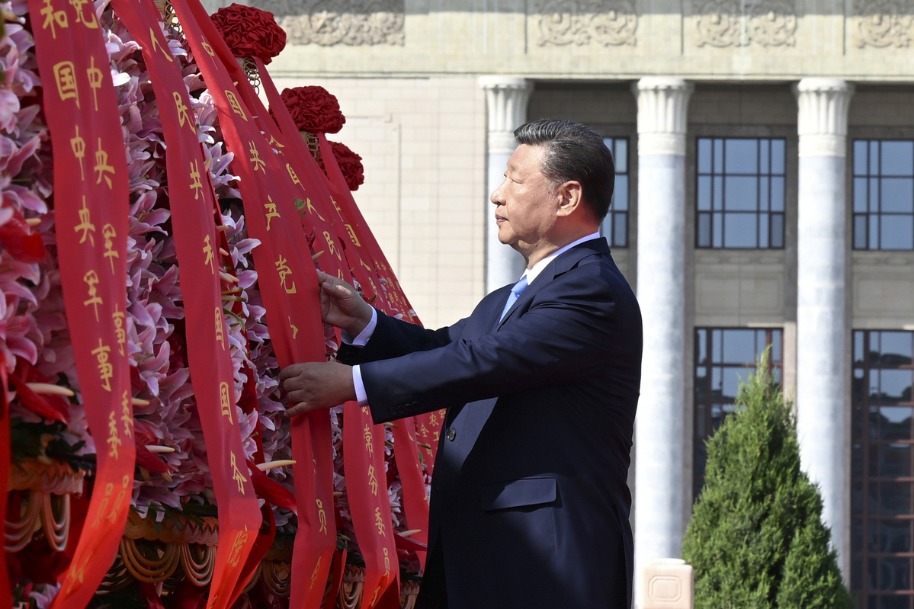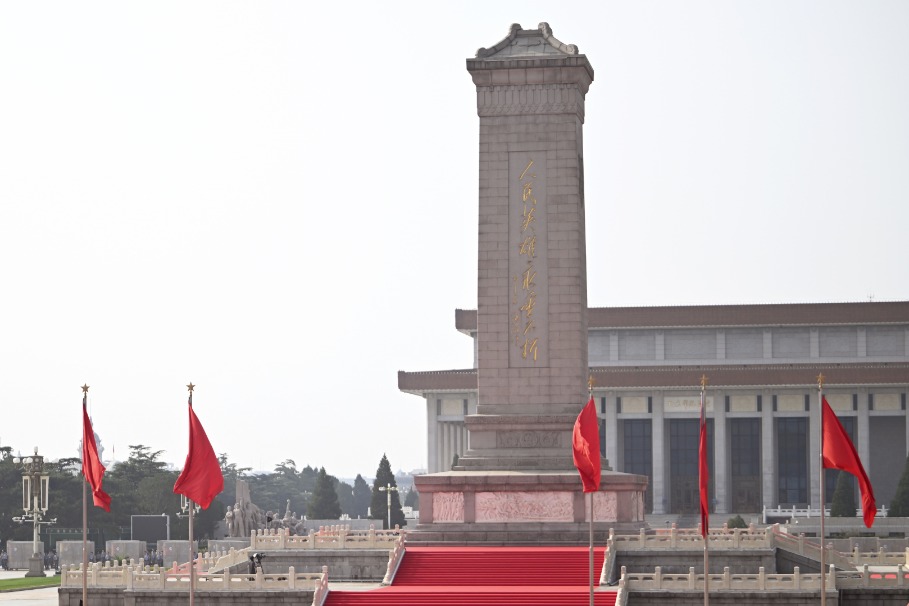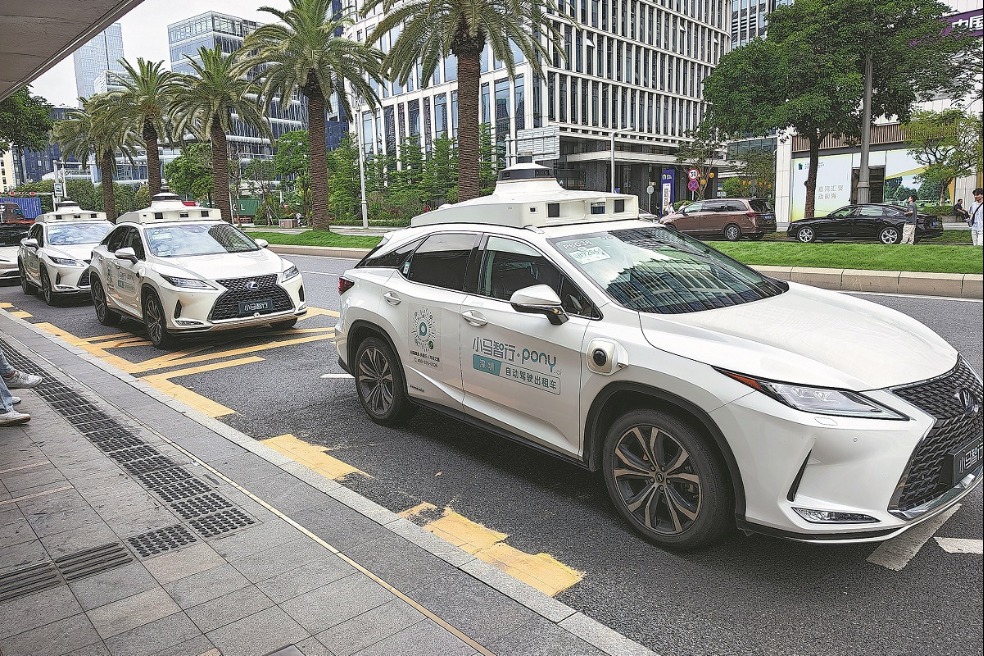Bosch sanguine on country's booming AI development
By FAN FEIFEI | China Daily | Updated: 2025-03-26 10:07
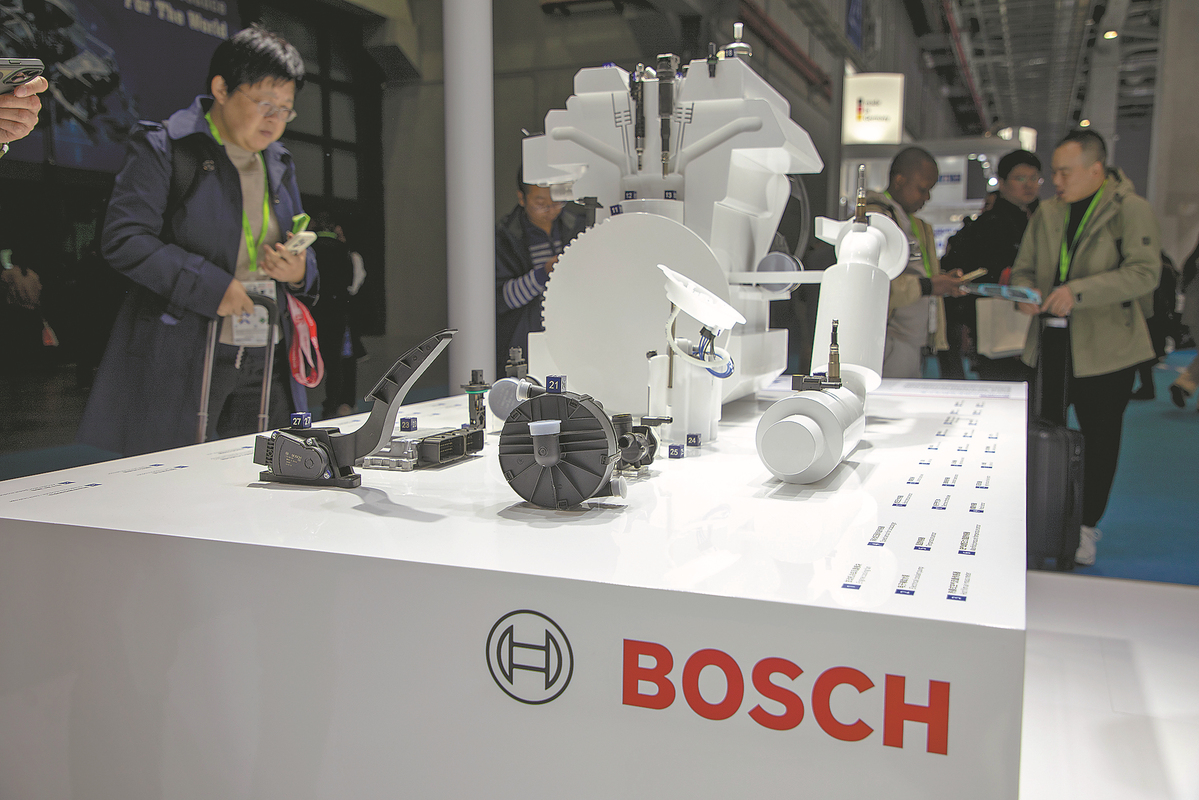
German industrial conglomerate Robert Bosch GmbH is bullish on prospects for applications of cutting-edge artificial intelligence technology and is actively expanding its research and development investment in the Chinese market, its top executive said.
Stefan Hartung, chairman of the board of management at Robert Bosch, said, "We have to see that China becomes not only a manufacturing location, but that it's also very much a research and development location, so about 10,000 of our 56,000 people are now engineers, mathematicians, physicists and people developing software that is made in China, for China."
He said in an interview with China Daily that the Chinese market is very research-intensive and Chinese consumers have very specific needs. Therefore companies need to also have R&D on the ground in China, and then the people can directly work with customers on the professional side to fit products with needs.
Hartung hailed China's recent achievements in the fast-evolving AI sector, such as the meteoric rise of Chinese AI startup DeepSeek, which has stunned the world with its latest reasoning models.
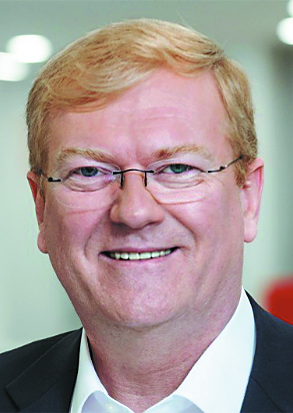
"That's a good contribution to the world because an open-source model always is a contribution for many people who do research like we do on AI. China definitely has a lot of potential in using AI, and I think going forward, we will also see a lot of applications, maybe in robotics, but maybe in automotives, maybe also core manufacturing operations. So I think there are a lot of opportunities."
He said the company has leveraged the state-of-the-art AI technology in autonomous driving, home appliance products and factories in China, adding, "Our Chinese colleagues are very good at that, so they are taking the newest technologies, applying them and inventing new ones, which is a good thing."
Hartung said Bosch has collaborated with many Chinese AI companies, such as autonomous driving startup WeRide.
"There are many other cooperation arrangements we have with AI companies in China, so it makes perfect sense to do this in cooperation."
As for China's emphasis on fostering new growth drivers, Hartung highlighted that the most important drivers include high-quality talents, which come out of schools, and technological innovation.
He said that a raft of policy measures boosting consumption unveiled by Chinese authorities — such as the consumer goods trade-in programs — have benefited the company in businesses of home appliances and auto parts in the world's second-largest economy, while showing optimism about the huge growth potential of China's consumer market.
Moreover, the company is promoting the development of low-carbon supply chains, and contributing to China's circular economy.
"We appreciate the efforts of the Chinese government in driving low-carbon development. Through forward-looking policies and initiatives, China is making remarkable progress and efforts to promote sustainable manufacturing, enhance resource efficiency and advance low-carbon supply chains," Hartung said.
Bosch has taken proactive steps to reduce emissions, enhance resource efficiency and integrate low-carbon technologies across its operations, he added. Last year alone, its facilities in China generated and consumed more than 60,000 megawatt-hours of green electricity from self-installed solar power systems — more than three times the level of 2020.
Noting that green hydrogen is a key technology in helping China achieve its dual carbon goals, he suggested further improving related support policies for the hydrogen industry, particularly in areas like incentivizing the purchase and operation of hydrogen fuel cell vehicles, and improving the hydrogen refueling infrastructure.







